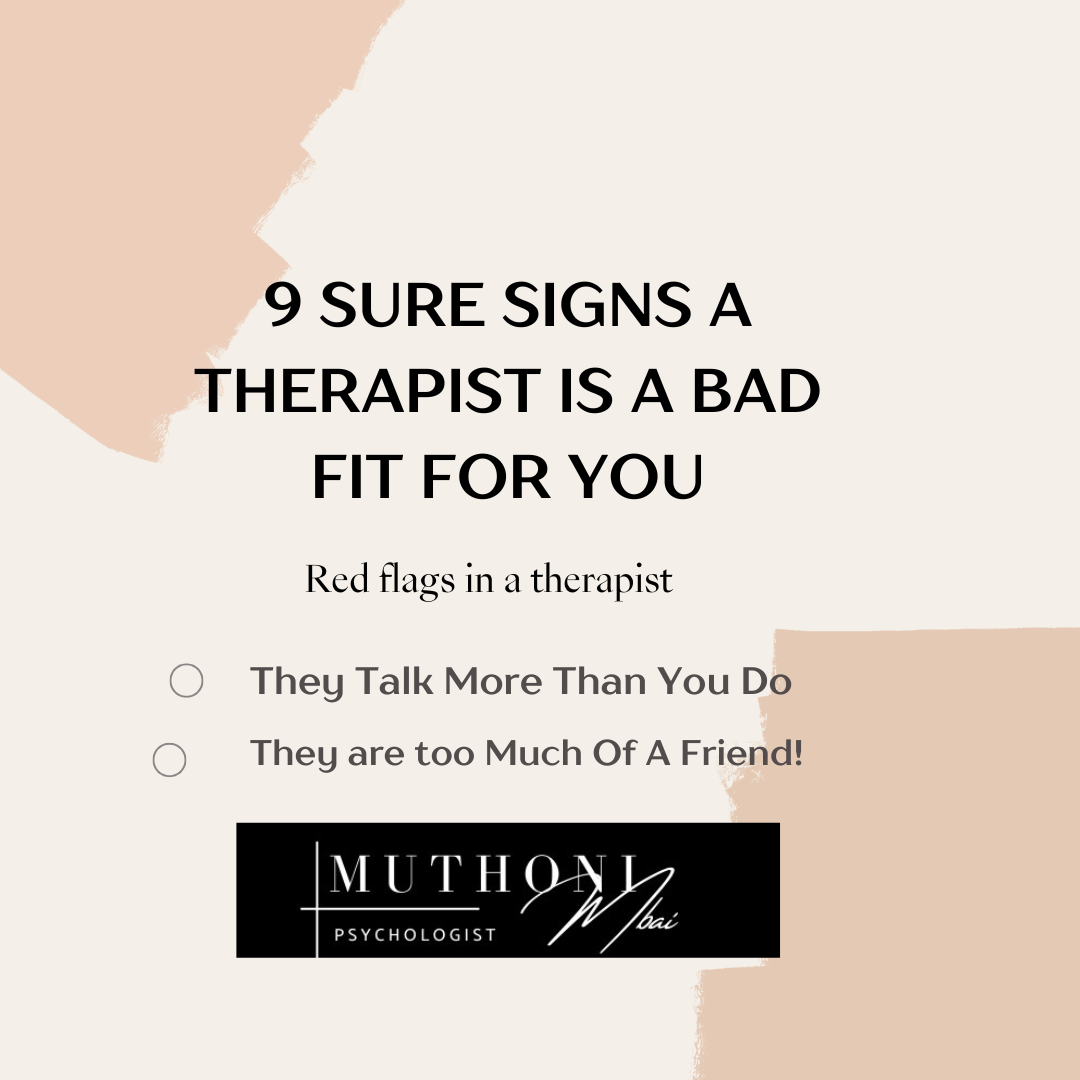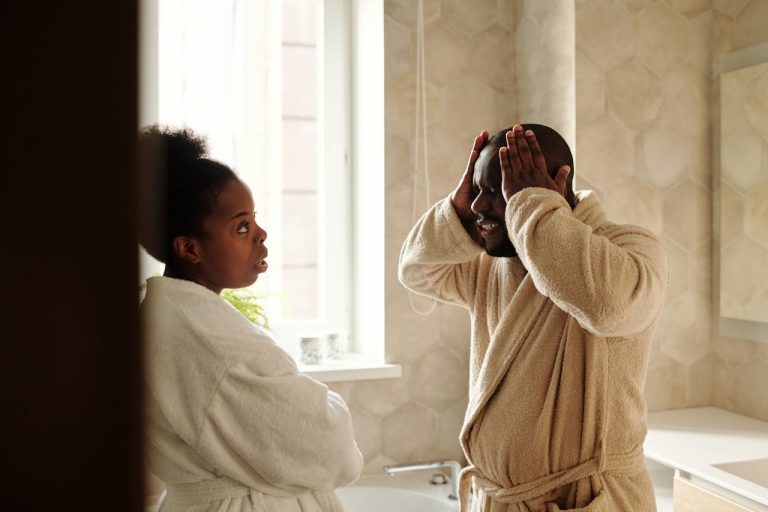
9 Sure Signs a Therapist is a Bad Fit for You

Therapy is a crucial step toward better mental health, but finding the right therapist can feel like dating—you’re hoping for someone who gets you, respects you, and helps you grow. Here are the 9 sure signs a therapist is a bad fit for you?
How soon will you tell that the therapist is a bad fit for you? Recognizing these 9 early signs can save you time, money, and emotional distress. Remember, these are early signs—don’t wait until it’s too late to make a change.
What Are the Red Flags to Look Out for in Therapists?
Therapists are trained to identify harmful behaviors in others, but what happens when the red flags are coming from the therapist? Here are 9 sure signs that your therapist is a bad fit:
- They are too Much Of A Friend! : It’s definitely nice to have a therapist who feels like someone you’d be friends with outside of therapy. However, there are certain therapist-client boundaries, and if your therapist breaks them often, this isn’t a good sign.
- They Talk More Than You Do: Therapy is your time to share and process your thoughts. If your therapist dominates the conversation, interrupting or talking excessively about themselves, it’s a sign they’re not prioritizing your needs.
- You simply don’t like them!: they don’t have to feel like you’d consider to be friends with outside therapy, but you must at least like their basic personality and find them trustworthy.
- They Judge or Shame You: Feeling judged during therapy? That’s a hard no. Therapists should create a non-judgmental space where you feel safe, not criticized.
- They are engaged in an unethical behavior: This includes inappropriate touching, asking for favors and more.
- They Push Their Beliefs on You: A good therapist remains neutral. If they impose personal or cultural beliefs that clash with yours, it’s a red flag.
- They are not clear about your goals: going for therapy for the 2nd and 3rd session and your therapist has not yet discussed therapy goals with you? this is a sign they are not a right fit!
- They Are Unreliable or Frequently Late: Consistency is key in therapy. If your therapist cancels sessions frequently or shows up late, it may signal a lack of professionalism or care.
- You Feel Unheard or Misunderstood: You should leave sessions feeling understood. If your therapist consistently misinterprets your emotions or brushes off your concerns, it’s time to reassess.
How to Tell if a Therapist is a Good Match
Finding the right therapist is a process, but here are some key traits that indicate you’re in good hands:
- They Make You Feel Safe: A good therapist creates an environment where you can express yourself without fear of judgment.
- They Respect Your Boundaries: Therapy should go at your pace. If a therapist respects your comfort levels and listens to your preferences, that’s a good sign.
- They Provide Feedback Thoughtfully: Constructive feedback can be incredibly helpful, but it should never feel like criticism. A great therapist offers insights in a supportive way.
- They’re Transparent About Their Approach: A therapist should clearly explain their methods and how they can help you achieve your goals.
- You Feel Progress: While change takes time, you should feel like you’re making strides, however small, toward your goals.
How Do You Tell if Your Therapist is Judging You?
The fear of being judged can stop some people from fully opening up in therapy. Are you questioning whether your therapist is judging you? Well, it’s easy to tell. If any of these questions is yes, then there is a chance they are judgmental.
- Tone of Voice: Do they sound dismissive or sarcastic when responding to you?
- Facial Expressions: Are they raising their eyebrows or smirking when you talk about sensitive topics?
- Choice of Words: Do their comments feel patronizing or condescending?
If you suspect judgment, address it directly. For instance, “I’m sensing some judgment—am I misinterpreting this?” A professional therapist will welcome the feedback and clarify their intentions. If they dismiss your concerns, it may be time to move on.
What Are the Side Effects of Too Much Therapy?
Believe it or not, too much therapy can be counterproductive. Therapy overload might leave you feeling:
- Emotionally Drained – Processing intense emotions without enough downtime can be overwhelming.
- Overdependent on Your Therapist – Therapy should empower you to cope independently, not create reliance on your therapist.
- Fixation on Problems – Spending too much time dissecting issues can make you feel stuck rather than moving forward.
To avoid these pitfalls, balance is key. Discuss any concerns about therapy frequency with your therapist to find a schedule that works for you.
Don’t Let a Bad Fit Discourage You
Not every therapist will be the right match for you—and that’s okay. The fear of getting a bad therapist shouldn’t stop you from seeking help. Think of the process as part of your journey to healing. If you realize early that a therapist isn’t right for you, you’re saving yourself from frustration later.
If you’re looking for professional support, feel free to contact us through our Contact Page. We’re here to help you find the best fit for your needs.
Remember, therapy is for you. Never settle for anything less than a therapist who supports, challenges, and empowers you in a way that feels right.




[…] Related Article: If you’re wondering what happens when therapy doesn’t feel right, check out these 9 Sure Signs a Therapist is a Bad Fit for You […]